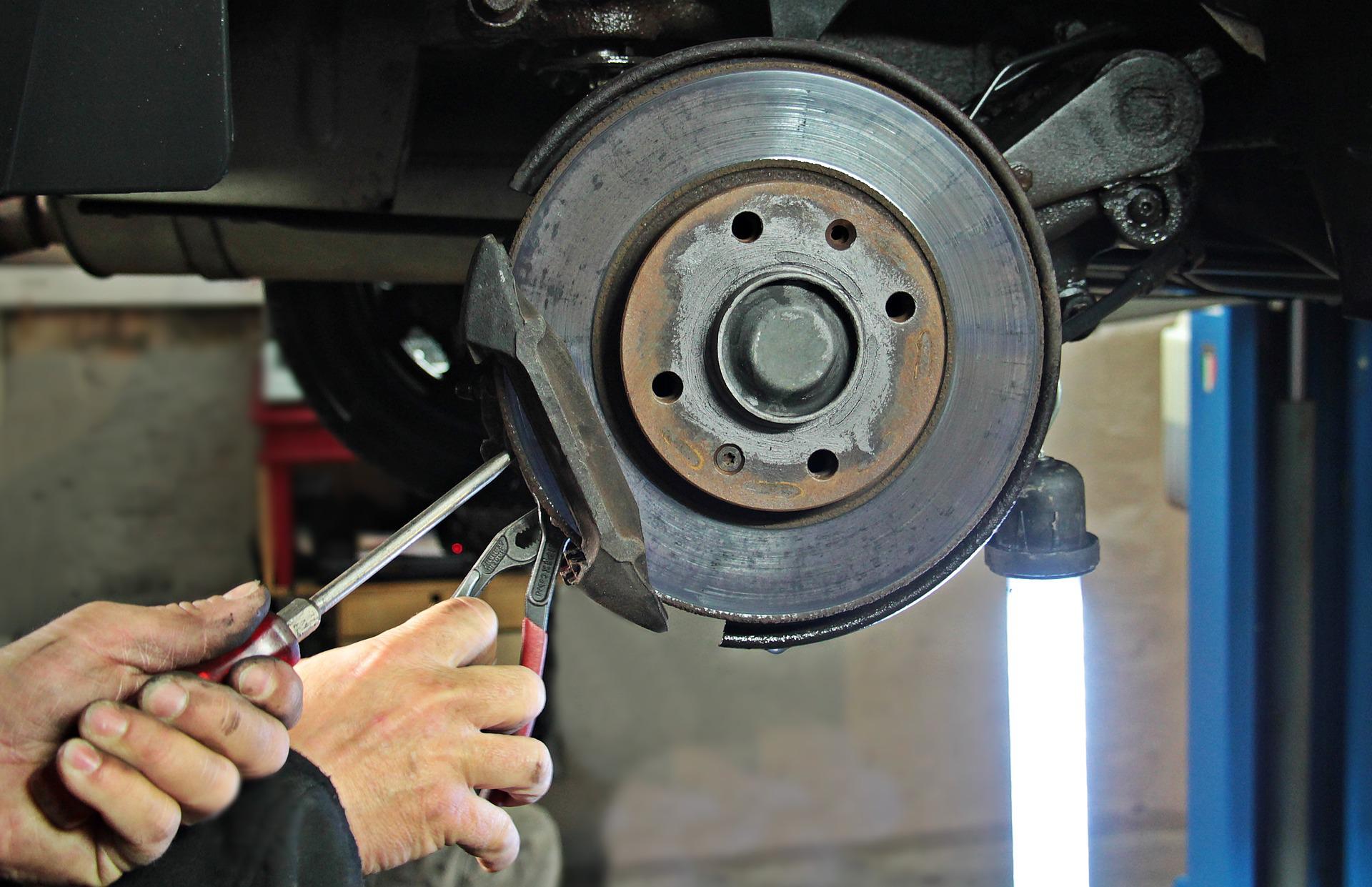
Brakes are an essential safety component as they allow you to control your speed. Over time, parts can wear out or get damaged. When this happens you’ll need a brake repair at your friendly Ford dealer. We’d like you to know some of the signs that your brakes need to be examined by our experts.
Visual Inspection
Unlike many other systems in your car, you can easily see many parts of your braking system. If you kneel and look between the wheel spokes, you can see the brake calipers, the brake pads, the rotors, and parts of the brake hoses. A visual inspection can give you a good idea if you have a potential brake problem.
If a wheel rotor has a blue sheen or is scratched and cracked, the affected rotor will need to be repaired or replaced. The brake pads should be more than 1/4″ thick for safety. If they’re thinner than this, they’ll need to be replaced. Liquid on the outside of a brake hose suggests a brake fluid leak.
Glazed Brake Pads
Your brake pads fit into the brake calipers, and they help to bring your rotors to a stop. The pads have a friction material covering, and as the pads grip either side of the rotors, the friction material slows and stops the rotors. The material covering is 1/2″ thick, but it gradually abrades as you use your brakes. These pads can be damaged by too frequent braking.
If you’re riding your brakes, this keeps the pads in close contact with the wheel rotors. While this helps control your speed, the continual friction damages the pad. The surface of the pads becomes glazed or smooth, and they can’t generate friction anymore. You may start to notice that your brakes take longer than they should stop your car.
Screeching Brakes
No one wants to hear screeching sounds, especially from their car. If you hear a high-pitched screech when you brake, this means you have a brake problem. The screeching is a sign that your brake pads have worn thin and need to be replaced. As we saw above, a brake pad is 1/2″ thick and wears down due to friction with the rotor.
When your pads reach a thickness of 1/4″, they need to be replaced. The manufacturers install a warning in the pads in the form of a metal spike. When the pads are due to be replaced, the spike becomes visible. This spike will scratch against the rotor when you use the brakes and generate an ear-piercing screech.
If you experience any brake problems, call our service department ASAP at Schicker Ford of St. Louis.
Image via Pixabay




